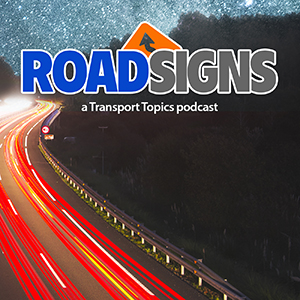Sacramento Partners With Self-Driving Firm for Driverless Tests on City Streets

Sacramento has signed a deal with a Silicon Valley firm to use downtown streets as a testing ground for self-driving vehicles that will be monitored by remote “drivers” sitting at computers.
The deal with Phantom Auto is expected to prepare Sacramento over the next six months to be perhaps the first California city where autonomous vehicles with no occupants are tested in traffic on public streets.
Those vehicles instead would be monitored by a person sitting in an office at computer video screens — possibly more than 100 miles away at Phantom Auto’s headquarters in Mountain View — who can take control of the vehicle if its onboard computer system can’t figure out how to navigate the road.
Phantom Auto, which provides technology for remote monitoring of autonomous vehicles, will spend the next few months checking Sacramento streets to make sure driverless cars can maintain continuous wireless connections to the people who will watch over them remotely.
RELATED: Uber Stops Work on Self-Driving Trucks, Reassigns Employees
Once that is done, Phantom Auto and the city of Sacramento plan to invite autonomous car companies to use streets here as driverless car testing grounds.
The agreement between the city and Phantom Auto is the first such cooperative testing effort in the country, according to the parties.
Sacramento Mayor Darrell Steinberg said the arrangement is a major step forward in Sacramento’s efforts to make itself a new technology hub nationally and to expand the local economy to include industries that provide modern jobs.
“I view this as another signature moment for our city,” he said. “It is a clear sign we are willing to step up and show the state and the country that we want to be on the forefront of new technologies.

In our second episode of RoadSigns, we ask: How will the next levels of automation be deployed? Hear a snippet from Chuck Price, vice president of product at TuSimple, above, and get the full program by going to RoadSigns.TTNews.com.
“The technology is coming, it is happening. You are either at the front of the parade … or the back watching it pass you by,” he said. “We want Phantom Auto and others to know this is where we want you to launch your new product.”
Advocates say autonomous cars ultimately will make driving safer, but some critics worry the industry is moving too quickly on testing without adequate regulations. They point to a fatal crash in Arizona in March when a self-driving Uber car hit and killed a woman crossing a street. An Uber employee was sitting in the driver’s seat but did not stop the car.
“We’re concerned that the computer vision isn’t yet capable of operating safely on the streets,” said Dave Snyder, head of the California Bicycling Coalition, whose group is among those urging caution. “We haven’t seen the definitive proof that they are.”
John Simpson of Consumer Watchdog has called remotely monitored robot cars akin to “playing a video game, except lives will be at stake.”
But Elliot Katz, co-founder of Phantom Auto, said he believes that remote human monitors will be a critical element of the autonomous vehicle world for years to come because the sophisticated computers, radar, cameras and lidar on robot cars will come across some road situations that they will not know how to handle.
Robot cars in those situations typically can be programmed to simply stop or pull over. Katz said remote operators instead can take over and make a safer decision.
“We believe you will always need a human in the loop,” Katz said. “There are so many oddball scenarios multiple times a day. [A computer] won’t react the same way a human will react.”
Under current state regulations, any car operated on California streets without a person in the driver’s seat must be monitored electronically by someone who has the ability to take control.
A company first must obtain a permit from the Department of Motor Vehicles to do that type of testing in Sacramento or other cities. A DMV representative on Aug. 1 said two autonomous vehicle companies have applied to obtain remote-operations permits, though no permits have been issued.
Typically, autonomous vehicle testing is done by a human sitting in the driver’s seat to take over in case something goes wrong.
By “mapping” out Sacramento streets, and assuring continuous wireless connections, Katz said Sacramento could make itself an attractive place for autonomous vehicle companies to conduct the next round of testing — where no one will be in the car.
“Safety is a huge issue since that tragic accident in Arizona,” where a pedestrian was killed by an autonomous vehicle, Katz said. The electronic mapping of streets here “is going to make Sacramento a pretty attractive location. Companies we do business with are very interested in the fact we are laying down this safety structure.”
Capital robot car test route
Sacramento officials hope to offer robot car demonstration rides on this route soon.
A consortium of Sacramento groups has put up $100,000 for the Phantom Auto project. According to city innovation officer Louis Stewart, contributors include the City of Sacramento, UC Davis, Sacramento State, Sacramento Regional Transit, the Sacramento Area Council of Governments and the Sacramento Metropolitan Air Quality Management District.
Stewart said Phantom Auto initially will test two designated routes provided by the city — one that loops past City Hall, the state Capitol and the convention center. The other will link the Sacramento State campus to the 65th Street light rail station. The university is exploring the possibility of operating driverless shuttles.
Innovation officer Stewart said the city hopes to use the downtown route soon for a few days to show select people, including legislators, how the technology works.
Phantom Auto is expected to do its wireless map testing for six months, then invite companies here to test, Katz said.
Distributed by Tribune Content Agency, LLC

